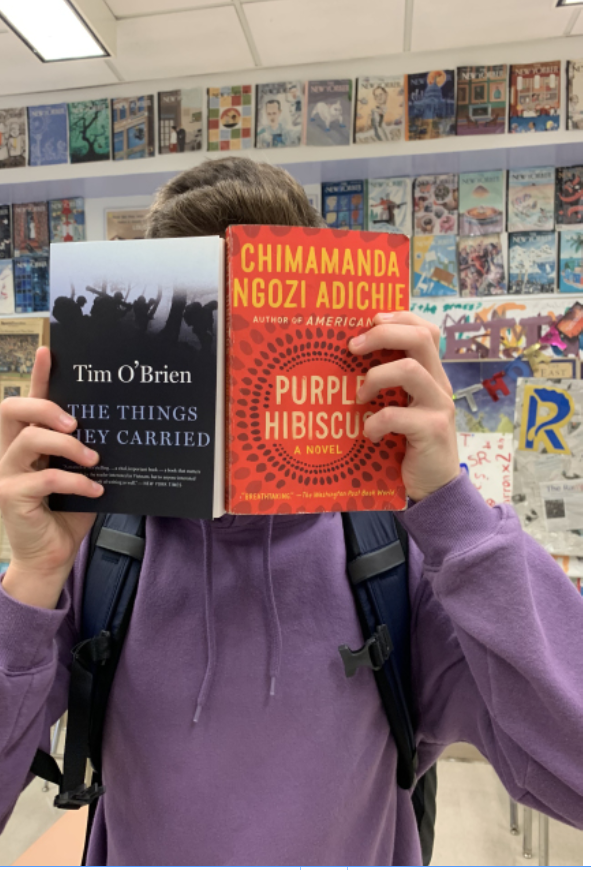Summer Homework – What’s the Point?
The end of the school year is a relief to many. No more finals, homeworks, or due dates. No more waking up early, unless for camp or vacation, which are fun activities. It’s a sigh of relief until you wake up a week before school starts and realize you had summer homework. The anxiety is crippling and happens to numerous students each year. Moriel Weitzner (’24) only realized she had Judiac summer homework in Mid- August. “I was talking to a friend who offhand mentioned the Pirkei Avot assignment, and I said what are you talking about? When did they send that email?” The incoming tenth grade’s Judaic summer homework, to read chapters 2-5 of Pirkei Avot, was only formally announced in an email to parents at the end of July. “I remember the teachers briefly mentioning it, but we hadn’t heard anything since. I thought it was a mere suggestion, not that we would be tested on it!” According to Rabbi Shiowitz, chair of the Talmud department, sophomores will have a short assessment on the first day back in school. This grade will be averaged as a quiz for the new semester. “Why are we being tested on things we do over the Summer? Don’t the students deserve a break? Aren’t we supposed to be relaxing?”
“Well first of all we don’t want students to forget how to read,” says Ms. Litwack, chair of the English Department. “We want them to continue working on their skills. Two months is a long time to go without picking up a book.” At the end of the school year the English department distributes books for summer reading. This year the incoming freshmen were assigned Purple Hibiscus, the incoming sophomores were assigned The Picture of Dorian Gray, and the incoming juniors were assigned The Things They Carried. The seniors’ books were dependent on the English course they chose. “For the 12th-grade classes I teach I usually give thick books over the Summer. They simply have more time to read them,” says Ms. Litwack,” It would just be more difficult to expect students to read books with over 400 pages when they have other work piling on.”
In a side-by-side comparison, at least in the secular department, Ramaz does not expect a lot from its students over the Summer. At other schools, including Frisch and SAR, students are sometimes asked to read more than one book and even write essays. “When I first came here, I don’t believe Ramaz even gave Summer Homework,” replied Ms. Litwack when asked why we don’t receive more assignments. “Over the years we came up with the Summer curriculum but we never thought of making students write essays, they can do that when they return to school.” For incoming Sophomores and Juniors, the week they return their English classes discuss elements and plot points of the books they have read. Later on, they write a graded in-class essay. The department even allows students to bring their books to class in case they forgot a character’s name or the chronological order of something that happened. “This isn’t a test, we just want to make sure kids understand the bigger picture of the novels,” explained Ms. Litwack.
The Judaic departments’ approach to summer homework is quite different. There is one Judaic Studies assignment every summer for the sophomores, juniors, and seniors. Students entering tenth grade must learn part of Mishna Pirkei Avot over the summer. Generally, the students learn an introduction to Pirkei Avot in the spring of Freshman year before being tasked with this work. Students entering eleventh grade are assigned to read a few essays that serve as an introduction to the junior JLT class. Entering seniors have a Tanakh assignment to learn readings about the Parshiyot Hashavua of the summer. Many students do not take the Judaic homework seriously, and of those students, many do not even attempt the assignments. When asked to comment on the accuracy of this, Rabbi Schiowitz replied that “based on the assesments, it seems that some do and some do not.”
The trend to only focus on secular summer homework is indicative of a common approach at Ramaz. “Secular classes are the ones colleges look at after all,” says Ian Bernstein ‘24, “I think colleges care more if we get an A in English than one in Talmud or Tanach.” However, the Talmud department argues there is a lot of value to these summer learning projects.
“The overall learning goal of the Judaic Studies departments is to educate students about the incredible importance of education in general and Torah learning in particular. Learning is a value that should be part of our lives throughout the year, in some form,” says Rabbi Shiowitz. However, to many students who balance Ramaz’s dual curriculum throughout the school year, it feels unnecessary to cause stress and agitation during the summer.
Summer homework’s job is to educate students and help them remember the things they learned in the past school year. Even though students may dislike it, it comes as a necessary evil to ultimately help students. It may even encourage students to take a break from their vacations and fun and step back into the real world to remember what they are coming back to in September.



